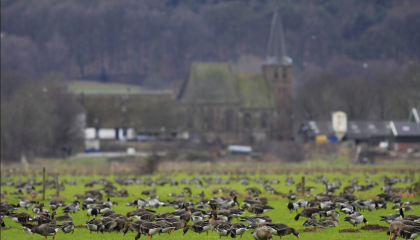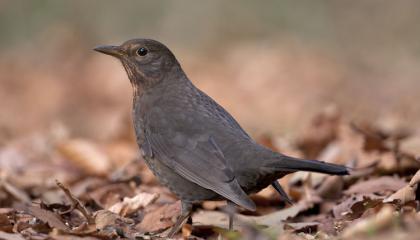Tractors, Trichomonas & Tags: understanding Turtle Dove decline
The European Turtle Dove Streptopelia turtur is in rapid decline across Europe (-77% since 1980), with severely declining populations in many NW Europe countries (e.g. -91% in the UK and -92% in the Netherlands). Within the EU, it is now classed as Near Threatened. Despite the alarming decrease, the causes of the decline are not well understood, hampering efforts to conserve the species.
As the species is a long-distance migrant, wintering in sub-Saharan Africa, and hunted across large parts of the range, it is possible that factors on the flyways and wintering grounds are compounding problems on the breeding grounds that result from changes in land management.
Disease
Using results from the latest English and French research studies, this talk will explore some of the reasons for the decline and the effects on Turtle Dove reproduction and survival. These drivers of decline include well-known problems related to food availability, the newly discovered threat of disease, and some factors that we still know too little about, such as the effect of hunting in southern Europe. To conclude, I will show how research has helped to design and implement a bespoke package of conservation measures for Turtle Doves, which is now available in the English agri-environment programme.
About Tony Morris
Dr. Tony Morris is a Senior Conservation Scientist at the RSPB in the UK. He has 20 years of experience of researching declines of and solution testing for farmland birds and other nature dependent on agriculture. His studies include work on the effects of pesticides, agri-environment schemes, research trials at the RSPB’s own farm near Cambridge in the UK, and autecological studies of many species including yellowhammer, skylark and yellow wagtail. He currently leads the RSPB’s programme of research on Turtle Doves in the UK.


